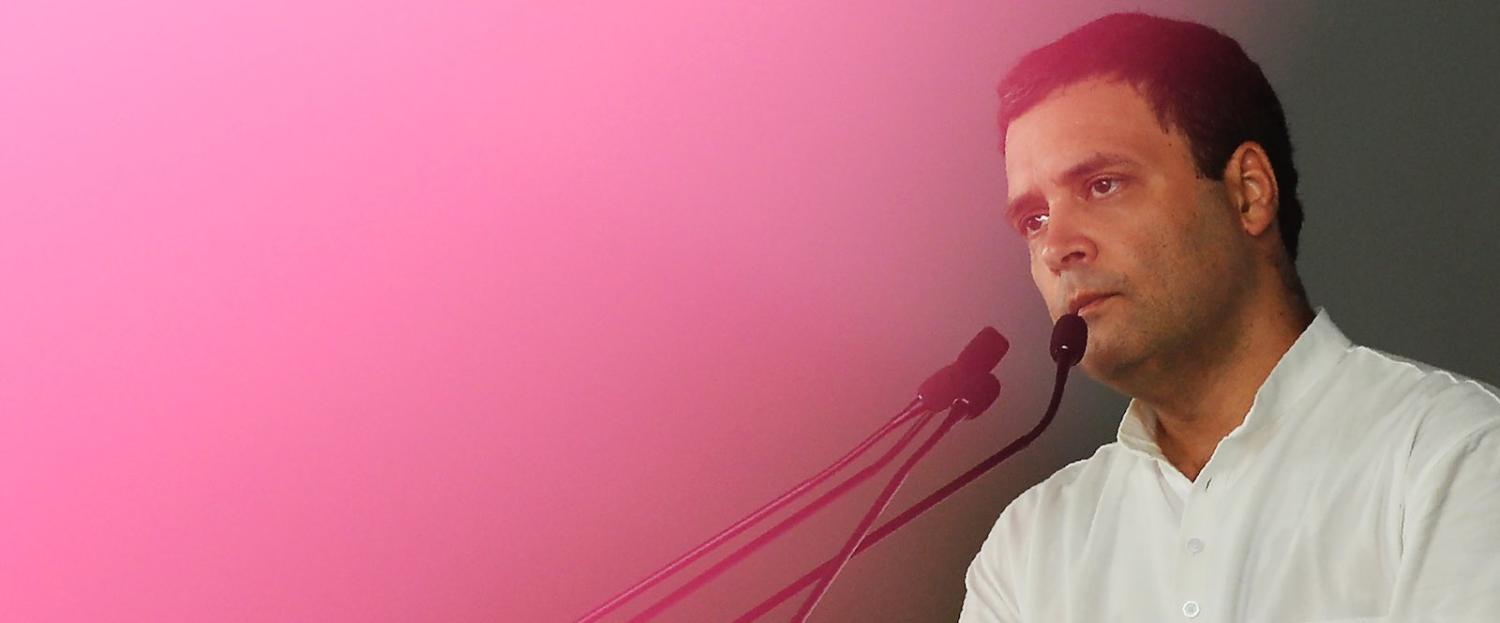Come 11 April, the first of the nearly 850 million eligible voters will begin to cast their votes in the world’s largest democratic exercise. India’s 17th Lok Sabha (lower house) elections will be held in seven phases between 11 April and 19 May, with counting to be held on 23 May.
For one man, this may well be the make or break moment in his reluctant political career.
Rahul Gandhi, the man who led the Congress party to its worst ever election defeat in 2014, winning only 44 seats of the 545 on offer, will not only be looking to salvage some of the Grand Old Party’s pride, but also hoping to pull off a miracle and take what many in his party claim is rightfully his: the prime ministership. On the first, he may well stand a chance. On the second, the jury is still out.
As the Election Commission announced the dates for the polls, India’s Congress Party unveiled its latest weapon: Priyanka Gandhi, sister of Rahul Gandhi and a woman who they hope will one day claim the Nehru/Gandhi legacy. It helps that she has a striking resemblance to her paternal grandmother and former prime minister, Indira Gandhi, and by all accounts, the crowds that came to hear the Gandhi’s speak came mostly to see her. Indeed, according to news reports, the moment she stopped speaking, many began leaving the rally.
For now, Priyanka’s value to the campaign is her celebrity and freshness, two things the Congress party hopes will enable her to galvanise the faithful and improve their prospects in the long run.

But politics is above all a game of numbers and while crowds may well turn up to see the latest Nehru/Gandhi addition to the political fray, the real battle is being fought in the party’s strategy rooms. Here, the immediate challenge is ticket distribution and forming alliances, two areas the Congress party is struggling with.
In the largest state of Uttar Pradesh (UP), which sends 80 MP’s to parliament, Congress has decided to contest all the seats on its own. Traditionally UP has been its stronghold. But no longer. In 2014, it won only 2 seats out of 80. Strong regional, caste-based parties such as the Samajwadi Party and the Bahujan Samaj Party have eaten into the old party’s base and are likely to, if not win, at least dilute Congress votes.
Rahul Gandhi has always been seen as a reluctant politician and with the arrival of his sister on the political firmament, the Congress party may have just told its followers and the world at large that he has failed.
The Bharatiya Janata Party (BJP), on the other hand, is busy making deals with various smaller parties. In 2014, the BJP won 71 of the state’s 80 seats and while it may not win as many this time around, it is highly unlikely the Congress Party is going to make any significant inroads in the state by going it alone.
It’s a similar story in the state of Maharashtra, which has 48 seats in the House of Representatives. Between the BJP and its ally the Shiv Sena, expectations are that more than half may well end up in the BJP’s bag.
For Congress, in the north of the country, Bihar appears to be a beacon of hope. Here, several regional parties have joined forces with Congress with the express intent of defeating the BJP. Bihar sends 40 MP’s to the Lok Sabha.
So far, in the formation of alliances and seat allocations, the BJP appears to have made far greater in-roads than the Congress Party.
But while the party apparatchiks crunch the numbers and make promises, Rahul Gandhi has been going about the lonely business of spruiking his credentials. The 14 February attack that killed 40 paramilitary soldiers in Kashmir and the subsequent escalation of tensions with Pakistan helped the BJP regain some of its lost sheen. The mounting problems of rising unemployment and low rural wages have been glossed over as Prime Minister Narendra Modi held 46 official events in less than a month.
Rahul Gandhi has been keeping pace too. He’s covered equally vast ground, conducting 2 press conferences and holding 23 events in 26 days. His attacks on the government have centred on allegations of corruption against the BJP in relation to the purchase of 36 fighter aircraft from France’s Dassault Aviation. The so-called “Rafale Deal” has come to dominate India’s headlines with accusations of favouritism and price inflation.
There are several other points of attack too. Rahul Gandhi has been talking up the impact of demonetisation, the GST regime, land rights for farmers and tribals, unemployment in both rural and urban areas. He’s also proposed a minimum income guarantee scheme, waivers for farm loans, and free education for women. He’s accused Modi of politicising the recent air strikes against Pakistan and of increased communalism under the BJP’s watch, including attacks on Kashmiris living in other parts of the country.
The problem thus far is that none of this appears to have cut through to the public. Modi may be a diminished figure from the one that claimed an unprecedented mandate in 2014, but no other figure within his party or outside has emerged as a strong contender.
Rahul Gandhi has always been seen as a reluctant politician and with the arrival of his sister on the political firmament, the Congress party may have just told its followers and the world at large that he has failed.
Could it be that in his case, the very thing that makes him strong is the same that destroys him?

